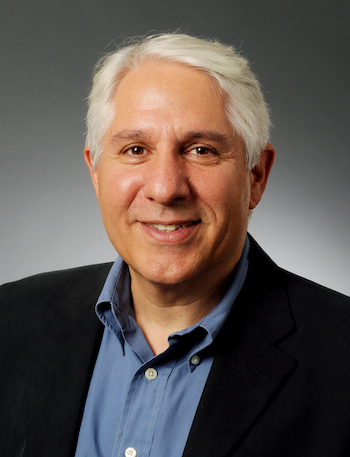
David L. Weisburd, known for his innovative work in place-based criminology, experimental criminology, and white-collar crime, was recently awarded the prestigious Israeli Rothschild Prize for 2022 in social sciences. This is the first time the prize (established in 1959 and awarded every four years in social science) has been received by a criminologist.
Weisburd, Distinguished Professor of Criminology, Law and Society at George Mason University and executive director of the Center for Evidence-Based Crime Policy, also holds an appointment as the Walter E. Meyer Professor of Law and Criminal Justice in the Institute of Criminology of the Hebrew University Faculty of Law.
“The fact that I received this prize in social science and am the first criminologist to receive this honor is meaningful to me,” Weisburd said. “Criminology is a relatively new discipline, and has sometimes not been recognized sufficiently in the broader context of social science.”
Weisburd has spent his career expanding the way criminologists understand deviance and crime. Early on he was intrigued by how deviance was seen as social control by those who carry it out. His interest in expanding the boundaries of traditional criminology continued to develop after taking a job at the Vera Institute of Justice, which required him to walk with police officers in the then high-crime 72nd precinct in Brooklyn, New York. That experience, which is highlighted in Malcolm Gladwell’s bestseller, “Talking to Strangers”, led to his proposals for studying high-crime hot spots.
“Walking the streets with the police, I saw that even in supposedly high crime areas, it was just a few streets where crime was concentrated,” he said.
His groundbreaking research on crime hot spots, developed with other Mason faculty, including Cynthia Lum, Chris Koper and SueMing Yang, has changed the way both practitioners and researchers view crime. Weisburd coined the term the “law of crime concentration” to acknowledge these findings, which point to the fact that crime is heavily concentrated in cities, with about 5% of streets producing 50% of crime.
This became the basis for a series of randomized field experiments showing that if the police focus on crime hot spots, they can be effective in reducing crime.
Prior to this work, criminologists said police could not prevent crime, but Weisburd and his colleagues learned that police can do just that if they focused on these hot spots.
When Weisburd received the prestigious Stockholm Prize in Criminology—sometimes termed Criminology’s Nobel—in 2010, he was noted as a key figure in overturning the “nothing works” view.
Recently, Weisburd has focused on social interventions at crime hot spots, as well as methods for improving police behavior in the field. Based on a large National Institutes of Health study at Mason, he has identified “collective efficacy” as a key factor in reducing crime on hot spot streets. Collective efficacy refers to the trust between neighbors and their willingness to intervene in community problems. Weisburd found that collective efficacy is much lower on hot spots streets, which has led him to propose interventions that focus on social rather than law enforcement interventions.
Weisburd also believes the best way to improve relationships between police and their communities is to provide police training on how to interact in positive ways with citizens. In a just-completed three-city randomized field trial, he found that police officers could be trained to treat citizens with greater respect and dignity, and that such behavior would lead to citizens viewing the police as less harassing and less violent. Crime also decreased in the areas where the treatment officers worked.
“It is certainly a good idea to examine issues like drug abuse and homelessness, and to see whether others can intervene,” Weisburd said. “But for hot spots of crime, the police are an essential service. And most people who live in such high crime places do not want to defund the police. Rather they want the police to treat them with dignity and respect. I don’t think this is too much to ask.”
